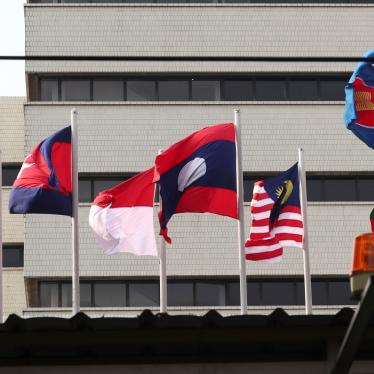Who says Congress can’t agree on anything? Last week, two extraordinary pieces of legislation moved out of a key committee toward the floor of the U.S. Senate.
The first, an amendment to a contentious trade authorization bill, would prohibit the president from using “fast track” trade authority for countries with the worst records on combating human trafficking, forced labor, and slavery—countries in “Tier 3” of the State Department rankings system.
The second, an amendment to a customs authorization bill, closes loopholes in laws that prohibit the import of goods produced by forced labor, child labor, and slavery.
The proposed amendments are no-brainers. Why would the United States allow or improve commerce with a country that allows forced labor to be part of its economy? Why would the United States want to reward countries that fail so significantly to value human dignity? And why would the United States want to allow the importing of goods produced by children or those in bondage?
It’s almost impossible to come up with plausible reasons to oppose laws that add teeth to already-existing laws meant to combat trafficking and forced labor.
There is certainly no evidence that increasing free trade with the U.S. improves a country’s record on human trafficking. On the contrary, the State Department has downgraded three countries—Panama, Colombia, and Morocco—since they entered into trade pacts with the U.S. And it’s not like the Obama administration is negotiating trade agreements with most of the lowest-ranked Tier 3 countries, which include North Korea, Syria, Russia, and Uzbekistan.
However, one Tier 3 country, Malaysia, is currently included in negotiations for the Trans-Pacific Partnership (TPP). Another, Thailand, is a potential future member. But given their dismal trafficking records, it’s hard to see why this is even the case.
Malaysia’s record is very bad. Traffickers there operate almost entirely unimpeded, importing refugees and migrants for huge fees and then using the debt to hold persons in “debt bondage,” a system in which people work for low and heavily-garnished compensation, indefinitely in many cases, to repay debts even as they accrue new “fees.”
Human Rights Watch has documented widespread labor exploitation in Malaysia among domestic workers from Cambodia and Indonesia. Despite an anti-trafficking law, proper assistance for victims and accountability for traffickers is the rare exception rather than the rule. Other human rights groups have documented trafficking of Rohingya Muslims who have fled oppression in Burma. These Rohingya refugees find themselves in a Sisyphean cycle of debt bondage, working to repay debts that never seem to decrease. Labor groups have also found trafficked workers from Vietnam in manufacturing and electronics plants, for instance.
Thailand’s record is even worse, and the provision that tightens import controls on goods produced by forced labor would probably hit segments of their seafood industry very hard.
The Malaysian government has taken few significant steps to improve its record despite a number of reports documenting trafficking in recent years. As recently as April 17, the US ambassador to Malaysia, Joe Yun, publicly acknowledged that the Malaysian government needed to do more and said that the State Department’s Tier 3 ranking would not change unless real progress is made, for instance, in the area of prosecution of traffickers.
The State Department shouldn’t upgrade Malaysia simply to encourage reform. The Obama administration has already rewarded Malaysia handsomely with bilateral visits and close military and intelligence coordination. More important, an upgrade would undermine the objectivity and integrity of the ranking system.
Opponents of the proposed provision on Tier 3 rankings have called it a “poison pill” for the TPP—as though the bipartisan group of 16 senators who passed the amendment out of committee were the problem, not Malaysia itself. The truth is that Malaysia’s record is the poison pill. The U.S. should not be negotiating closer economic ties with countries that have such poor records and demonstrate no willingness to address the problem.
It would be an abandonment of principle to oppose the provisions merely for the TPP’s sake, or Malaysia’s sake. The Obama administration and leadership in Congress should support the new provisions, and the House leadership should include parallel provisions in their version of the bill.
Rather than fight provisions that disallow Malaysia from entering the TPP, the Obama administration should simply tell Malaysia that it needs to improve its record before it can continue negotiating, and in the meantime, proceed in negotiations with other TPP members.
The right thing to do is clear. The only question is whether President Obama and Congress do it.
John Sifton is Asia Advocacy director at Human Rights Watch.








